Last updated on July 17th, 2023 at 04:23 pm
Contents
- 1 The True Story: Why are Cuban Cigars Illegal in the USA
- 1.1 The Allure of Cuban Cigars in America
- 1.2 Historical Context: The Roots of the Cuban Cigar Ban
- 1.3 The Trade Embargo: A Barrier to Cuban Cigars
- 1.4 The Legal Status of Cuban Cigars in the US
- 1.5 The Loopholes and Workarounds: Navigating the Cuban Cigar Ban
- 1.6 The Impact on the Cigar Industry: Adapting to the Cuban Cigar Ban
- 1.7 The Future of Cuban Cigars in the US: Prospects and Predictions
- 1.8 Unraveling the Smoke: Concluding Thoughts on the Cuban Cigar Ban
- 1.9 Concluding Insights on the Cuban Cigar Ban
The True Story: Why are Cuban Cigars Illegal in the USA
Cuban cigars, often referred to as the “Rolls Royce” of the cigar world, have long been renowned for their superior quality and exquisite flavor. However, despite their global acclaim, these premium-quality cigars are notably absent from the US market.
This absence is not due to a lack of demand or appreciation for these fine cigars, but rather a result of longstanding political and economic tensions between the United States and Cuba. The question that arises then is, “Why are Cuban cigars illegal in the US?”
This topic isn’t only intriguing but also highly relevant in today’s context. The prohibition of Cuban cigars in the US is a direct reflection of the complex historical and political relationship between the two nations.
It’s a subject that intertwines the realms of international politics, economics, and the luxury goods market, making it a fascinating study for a wide range of readers.
Regardless if you’re a cigar enthusiast curious about why you can’t legally enjoy a Cuban cigar in the US, or a casual reader intrigued by the intersection of politics and commerce, this topic offers valuable insights.
In this blog post, we’ll discuss the historical events that led to the ban, the legal implications of the embargo, and the impact it has had on the cigar industry.
We’ll also explore the potential future of Cuban cigars in the US market, offering a thorough exploration of the factors that could shape their legality in the future.

The Allure of Cuban Cigars in America
Cuban cigars, often referred to as ‘Habanos,’ are the epitome of luxury and sophistication in the world of tobacco. They’re renowned for their exceptional quality, distinctive flavor, and the superior craftsmanship that goes into their creation.
Each cigar is a work of art, hand-rolled with precision and care, using tobacco leaves grown in the fertile soils of the Vuelta Abajo region in Pinar del Río Province, a location that is uniquely suited for tobacco cultivation.
This specific geographical origin, combined with centuries-old traditions of tobacco processing and cigar making, gives Cuban cigars their unique and unrivaled qualities.
The allure of Cuban cigars extends far beyond their physical attributes. Their mystique and exclusiveness stem from limited availability, especially in the US.
The act of smoking a Cuban cigar is often seen as a symbol of celebration, success, or simply the enjoyment of a moment of leisure.
Globally, the demand for Cuban cigars is consistently high. Despite the legal restrictions in the US, Cuban cigars continue to be highly sought after by cigar connoisseurs around the world.
They’re often the cigar of choice for special occasions and are considered a prized possession among collectors. In countries where they’re legally available, Cuban cigars are often the best-selling and most popular cigars on the market. – Take me there!
The global perception of Cuban cigars is largely positive. In fact, they’re widely regarded as the gold standard in the cigar industry, a benchmark against which other cigars are measured.
Plus, their reputation is backed by numerous awards and accolades from international cigar publications and competitions. Despite the controversies and challenges surrounding their legality, the allure of Cuban cigars remains undiminished, a testament to their enduring quality and appeal.
Historical Context: The Roots of the Cuban Cigar Ban
To fully grasp why Cuban cigars are considered contraband in the United States, we must embark on a historical expedition.
The prohibition of these coveted cigars isn’t a random act of legislation, but rather a consequence of a series of significant events that have defined the relationship between the United States and Cuba over the past century.
This intricate tapestry of history is woven with threads of political ideology, economic interests, and international diplomacy, all of which have contributed to the current state of affairs.
In this section, we’ll journey back through time, exploring the key milestones that have shaped the narrative of the Cuban cigar ban. From the rise of Fidel Castro and the establishment of a socialist state in Cuba to the failed Bay of Pigs Invasion and the subsequent hardening of US policy towards Cuba, each event has left an indelible mark on the course of Cuba-US relations.
By taking a closer look at these historical events, we aim to provide a comprehensive understanding of the roots of the Cuban cigar ban, shedding light on the complex interplay of factors that have led to the prohibition of one of the world’s most esteemed cigars in the United States.
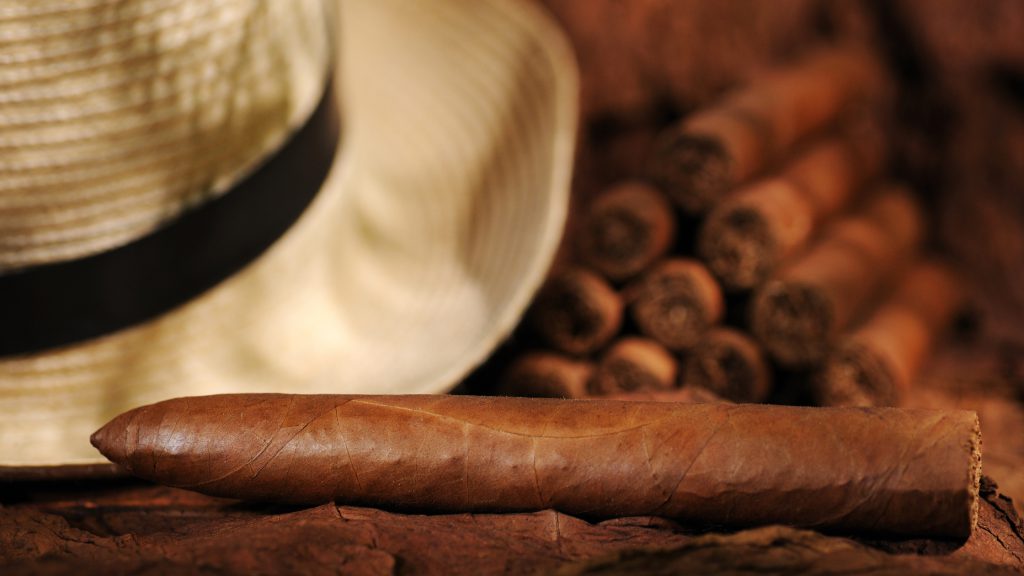
The Evolution of Cuba-US Relations
The relationship between the United States and Cuba has been a tumultuous one, marked by periods of cooperation and conflict. In the early 20th century, the United States exerted significant influence over Cuba, both politically and economically.
American businesses thrived on the island, particularly in the sugar and tobacco industries. However, this relationship began to sour with the rise of nationalist sentiments in Cuba and growing resentment towards perceived American imperialism.
The Rise of Fidel Castro and Its Impact on Cuba-US Relations
The turning point in US-Cuba relations came with the rise of Fidel Castro. In 1959, Castro led a successful revolution against the US-backed Batista regime and established a socialist state in Cuba.
Castro’s regime nationalized all foreign-owned businesses, including those owned by Americans, without compensation. This move, coupled with Castro’s alignment with the Soviet Union at the height of the Cold War, led to a rapid deterioration in Cuba-US relations.
The United States responded with a series of economic sanctions, culminating in a full trade embargo that included the prohibition of Cuban cigars.
The Bay of Pigs Invasion and Its Implications
The tensions between the United States and Cuba reached a boiling point with the Bay of Pigs Invasion in 1961. This ill-fated attempt by the US to overthrow Castro’s regime ended in failure and served to strengthen Castro’s position both domestically and internationally.
The invasion also solidified Cuba’s alliance with the Soviet Union, further straining its relationship with the United States. The fallout from the Bay of Pigs Invasion played a significant role in the decision to maintain the trade embargo against Cuba, which continues to keep Cuban cigars off the US market to this day.
The Trade Embargo: A Barrier to Cuban Cigars
The trade embargo against Cuba, often referred to as “El Bloqueo” or “The Blockade,” is a pivotal factor in the narrative of why Cuban cigars are illegal in the US.
This economic sanction, which has been in place for over six decades, is more than just a barrier to trade; it’s a symbol of the longstanding political tensions and ideological differences between the United States and Cuba.
In this section, we’ll dissect the intricacies of the trade embargo, its origins, and its profound impact on the Cuban cigar industry.
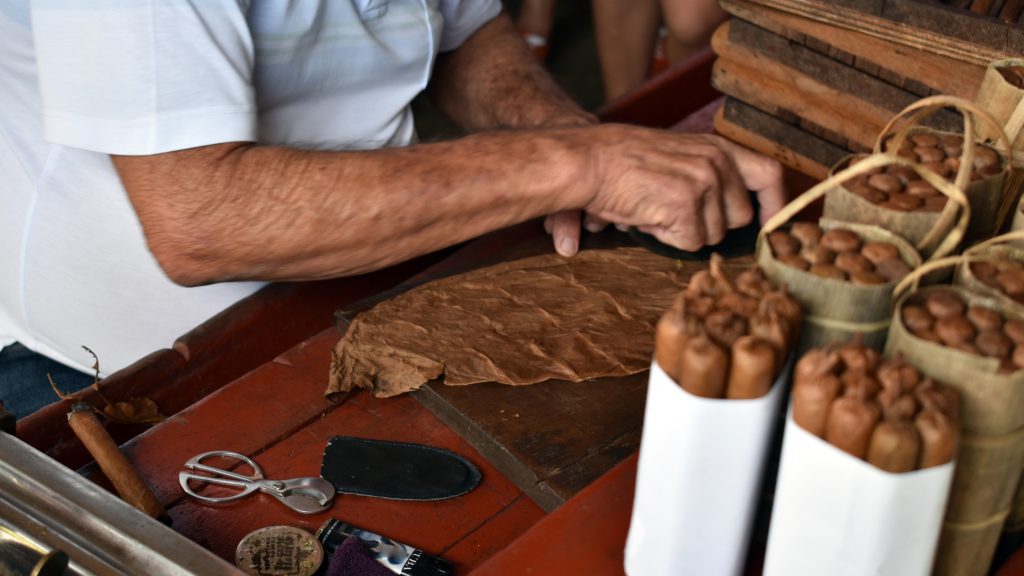
Understanding the Trade Embargo and Its Implications
The trade embargo against Cuba is a comprehensive set of economic sanctions that prohibits all direct trade between the United States and Cuba.
Initiated in response to the nationalization of American-owned businesses in Cuba without compensation, the embargo has had far-reaching effects on both countries.
It has not only isolated Cuba economically but also had a significant impact on the country’s development and the living conditions of its people.
The embargo has also influenced the dynamics of international politics and trade, with the United States facing criticism from various international bodies for maintaining these sanctions.
John F Kennedy and the Establishment of the Embargo
The trade embargo was officially established under the administration of President John F Kennedy in 1962. Amid the height of the Cold War and escalating tensions with the communist regime of Fidel Castro, Kennedy saw the embargo as a necessary measure to contain the spread of communism and protect American interests.
Interestingly, it’s often noted that Kennedy ordered his press secretary to buy up to 1,200 Cuban cigars just hours before he signed the embargo into law. The immediate aftermath of this decision saw a hardening of relations between the two countries and set the stage for future conflicts that still rage on to this very day, unfortunately.
The Impact of the Embargo on Cuban Cigars
The embargo has had a profound impact on the Cuban cigar industry. With the United States being one of the largest markets for cigars, the prohibition of Cuban cigars has led to significant revenue loss for the industry.
It has also affected the global perception and distribution of Cuban cigars, with many cigar enthusiasts around the world unable to legally obtain these prized smokes due to the embargo.
Despite these challenges, the Cuban cigar industry has shown remarkable resilience, maintaining its reputation for producing some of the world’s finest cigars.
However, the question remains: what could the industry achieve if the embargo were lifted, and Cuban cigars were once again allowed into the US market?
The Legal Status of Cuban Cigars in the US
The legal status of Cuban cigars in the United States is a complex issue, shaped by decades of political decisions and changing regulations.
Despite their global acclaim, these cigars remain a forbidden luxury in the US due to the ongoing trade embargo against Cuba.
In this section, we’ll discuss the current legal status of Cuban cigars in the US, the changes in regulations over different presidential periods, and the penalties associated with smuggling Cuban cigars into the country.
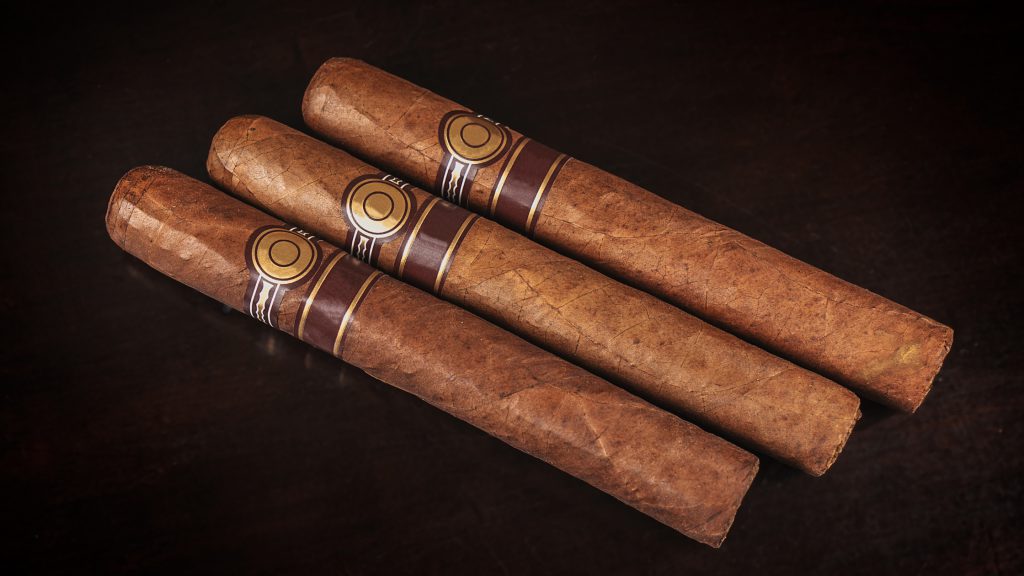
Current Legal Status of Cuban Cigars in the US
As of now, Cuban cigars remain illegal in the United States due to the trade embargo against Cuba. This means that the import, possession, and sale of Cuban cigars are prohibited.
Even if you were to travel abroad, you can’t legally bring Cuban cigars back into the US. This prohibition applies regardless of where the cigars were purchased and whether they were intended for personal use or commercial purposes.
Changes in Regulations Over Different Presidential Periods
The regulations surrounding Cuban cigars have seen several changes over different presidential periods. During the Obama administration, there was a brief relaxation of the rules, allowing Americans to bring a limited amount of Cuban cigars back into the country for personal use.
However, this policy was reversed under the Trump administration, which reinstated the total ban on Cuban cigars. These changes reflect the shifting political attitudes towards Cuba and the ongoing debate over the effectiveness and morality of the trade embargo.
As for the Biden administration, they haven’t made any significant changes to the policy regarding Cuban cigars; although, President Biden has indicated a willingness to review the policies implemented by the Trump administration and consider a return to the more open approach towards Cuba that characterized the Obama era. We’ll see…
The Penalties for Smuggling Cuban Cigars into the US
Smuggling Cuban cigars into the US is a serious offense that can result in severe penalties. These can range from hefty fines to imprisonment, depending on the quantity of cigars involved and the intent of the individual.
For instance, if someone is caught trying to import a large quantity of Cuban cigars for commercial purposes, they could face a significant fine and potentially even a prison sentence.
Even if the cigars were intended for personal use, the individual could still be fined and have the cigars confiscated. These penalties serve as a deterrent to those considering smuggling Cuban cigars into the US, reinforcing the seriousness of the prohibition.
Despite the stringent laws and penalties associated with the importation and possession of Cuban cigars in the United States, some individuals and entities have found ways to circumvent these restrictions.
Going forward in this section, we’ll discuss all the various loopholes and workarounds that have been exploited to obtain these coveted smokes. We’ll also discuss the risks and potential penalties associated with these practices, providing a comprehensive look at the lengths some are willing to go to enjoy a Cuban cigar.
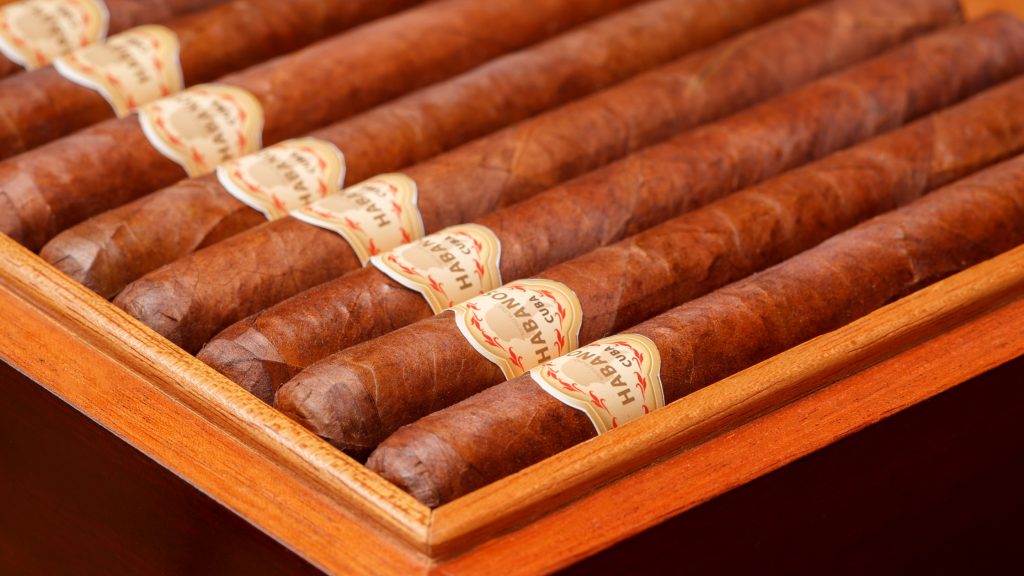
How Some Manage to Get Cuban Cigars Despite the Ban
One common method of obtaining Cuban cigars in the US is through third-party countries. For instance, an individual might travel to a country where Cuban cigars are legal, purchase them there, and then bring them back to the US. This method, while technically illegal, can be difficult to enforce, particularly if the cigars are removed from their original packaging and mixed with cigars from other countries.
Online sales also provide a potential loophole. Numerous websites based in other countries sell Cuban cigars and offer to ship them to the US. These sites often use discreet packaging to avoid detection by customs officials. However, this method is risky, as customs agents are adept at identifying and seizing such shipments.
Another workaround is the production of “counterfeit” Cuban cigars. These are cigars that are made in other countries but are designed to mimic the taste and appearance of genuine Cuban cigars. While these cigars are legal to purchase in the US, they aren’t true Cuban cigars and can vary significantly in quality.
The Risks and Potential Penalties Involved
While these loopholes and workarounds may provide a way to obtain Cuban cigars, they come with significant risks. As mentioned earlier, the penalties for importing Cuban cigars can be severe, ranging from hefty fines to imprisonment. Even if the cigars are intended for personal use, they can still be confiscated, and the individual can be fined.
In addition to the legal risks, there are also quality risks, particularly with counterfeit Cuban cigars. These cigars can vary widely in quality, and some may contain inferior or even harmful ingredients. Furthermore, purchasing Cuban cigars from unofficial sources contributes to the illegal cigar trade, which can have negative impacts on the legitimate cigar industry.
In short, while there are ways to obtain Cuban cigars despite the ban, these methods come with significant risks and potential penalties. It’s always advisable to respect the laws and regulations of your country and to only purchase cigars from reputable sources.
The Impact on the Cigar Industry: Adapting to the Cuban Cigar Ban
The prohibition of Cuban cigars in the United States has had a profound impact on the cigar industry, both within and outside of Cuba.
From the creation of parallel brands to the strategies employed by Cuban cigar companies in response to the ban, the industry has had to adapt and innovate in the face of these challenges.
In this section, we’ll explore these impacts in detail, shedding light on the resilience and ingenuity of the cigar industry in navigating the complexities of the Cuban cigar ban.
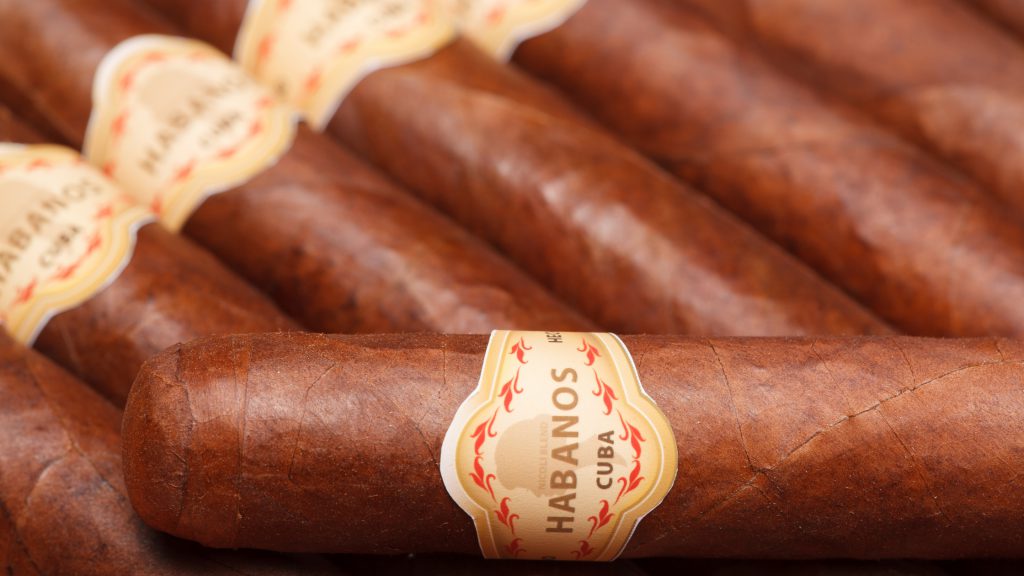
The Creation of Parallel Brands
One of the most significant impacts of the Cuban cigar ban in the United States has been the creation of parallel brands.
Following the nationalization of the cigar industry in Cuba, many cigar makers fled the country and established new operations in other countries, particularly in Central America and the US.
These exiled cigar makers began producing non-Cuban versions of their cigars, effectively creating parallel brands.
For instance, brands like Montecristo, Partagas, and Romeo y Julieta exist in two versions: the original Cuban version and the non-Cuban version produced by the exiled cigar makers.
These parallel brands have allowed the exiled cigar makers to continue their craft and maintain their brand identities, despite being cut off from their roots in Cuba.
The Impact on Cuban Cigar Companies and Their Response
The Cuban cigar ban has also had a significant impact on Cuban cigar companies. The loss of the US market, one of the largest markets for cigars in the world, has resulted in substantial revenue loss for these companies.
However, despite this setback, Cuban cigar companies have shown remarkable resilience. In response to the ban, Cuban cigar companies have focused their efforts on other markets around the world.
They’ve also invested in improving their production processes and maintaining the high quality of their cigars, ensuring that Cuban cigars remain the gold standard in the cigar industry.
Despite the challenges posed by the ban, Cuban cigar companies have managed to thrive and continue to produce some of the world’s finest cigars.
The Future of Cuban Cigars in the US: Prospects and Predictions
The future of Cuban cigars in the United States is a topic of much speculation and debate. With changing political climates and evolving attitudes towards Cuba, there is a possibility that the current restrictions could be relaxed or even lifted in the future.
Moving ahead in this section, we’ll explore the potential scenarios that could unfold and the impact these changes could have on the cigar industry and consumers.
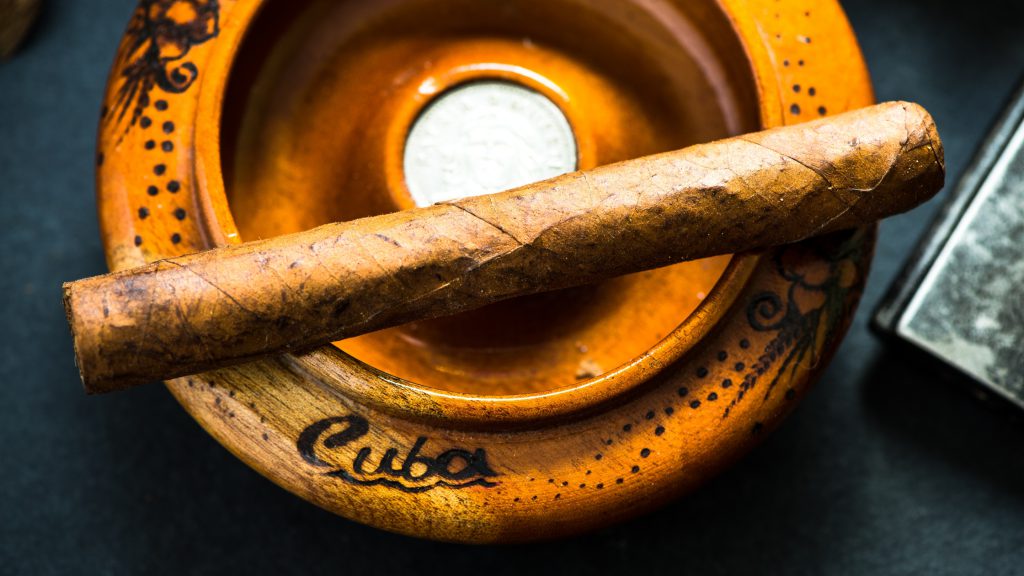
Speculation on Potential Changes in the Future
The potential for change in the status of Cuban cigars in the US largely depends on the future of US-Cuba relations.
If relations were to improve, and the trade embargo was to be lifted or relaxed, it could open the door for Cuban cigars to make a legal return to the US market.
However, such a change would likely be contingent on a variety of factors, including political changes in both countries, negotiations over compensation for nationalized properties, and agreements on human rights issues.
There’s also the possibility of a partial lifting of the ban, similar to the brief relaxation of restrictions during the Obama administration. This could allow Americans to bring back a limited quantity of Cuban cigars from trips abroad for personal use, but not for resale.
The Impact of Potential Changes on the Cigar Industry and Consumers
The impact of any potential changes on the cigar industry and consumers would be significant. For the cigar industry, the return of Cuban cigars to the US market could lead to increased competition, particularly for premium cigar brands. Plus, it could also provide opportunities for collaboration and growth.
For consumers, the lifting of the ban would mean access to a wider range of products, including some of the world’s most renowned cigars. It could also lead to a decrease in the price of Cuban cigars due to increased availability.
That said; it’s important to note that even if the ban were lifted, it would likely take time for Cuban cigars to become widely available in the US.
Factors such as production capacity, distribution networks, and regulatory requirements would all play a role in determining how quickly Cuban cigars could make a full return to the US market, which is something most of us have never experienced in our lifetimes!
Unraveling the Smoke: Concluding Thoughts on the Cuban Cigar Ban
As we reach the end of our discussion into why Cuban cigars are illegal in the United States, it’s time to recap the main points and share some final thoughts on the topic.
This journey has taken us through the historical, political, and economic factors that have contributed to the prohibition of Cuban cigars in the US, providing a comprehensive understanding of this complex issue.
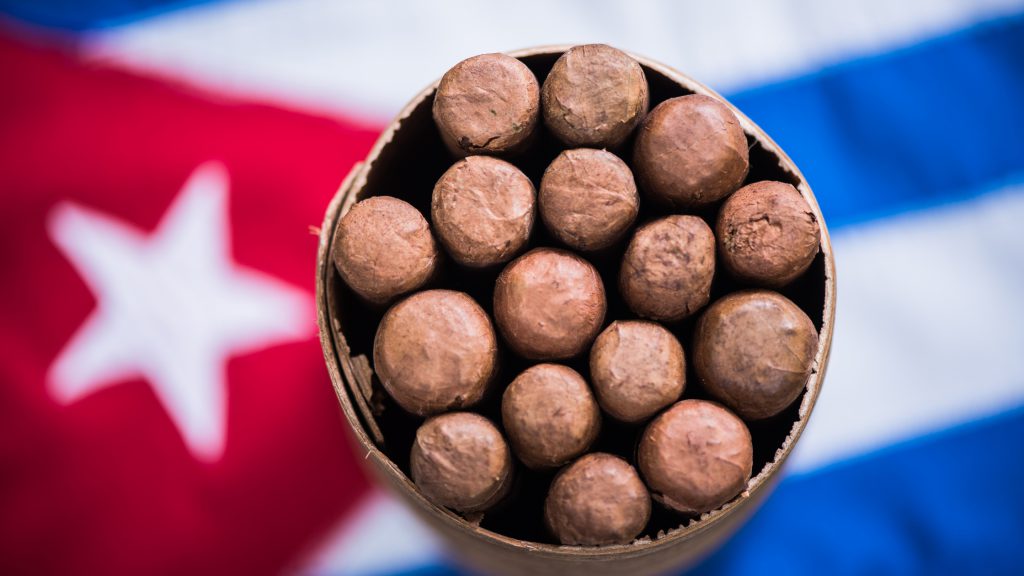
Recap of the Main Points
In our exploration of why Cuban cigars are illegal in the US, we’ve covered several key points:
- The Allure of Cuban Cigars: We discussed the unique qualities of Cuban cigars that have earned them global acclaim and the high demand for these cigars despite their prohibition in the US.
- Historical Context: We delved into the evolution of Cuba-US relations, the rise of Fidel Castro, and the implications of the Bay of Pigs Invasion, all of which have contributed to the current state of affairs.
- The Trade Embargo: We explored the trade embargo against Cuba, its establishment under the Kennedy administration, and its enduring impact on the Cuban cigar industry.
- The Legal Status of Cuban Cigars in the US: We discussed the current legal status of Cuban cigars in the US, the changes in regulations over different presidential periods, and the penalties for smuggling Cuban cigars into the country.
- The Loopholes and Workarounds: We looked at the various methods some people use to obtain Cuban cigars despite the ban, and the risks and potential penalties associated with these practices.
- The Impact on the Cigar Industry: We examined the creation of parallel brands and the response of Cuban cigar companies to the ban.
- The Future of Cuban Cigars in the US: We speculated on potential changes in the future and the impact these changes could have on the cigar industry and consumers.
Concluding Insights on the Cuban Cigar Ban
The prohibition of Cuban cigars in the US is a complex issue, deeply rooted in historical events and political decisions. While the future remains uncertain, what is clear is that the allure of Cuban cigars remains undiminished.
Despite the ban, these cigars continue to be celebrated for their superior quality and craftsmanship, a testament to the resilience and ingenuity of the Cuban cigar industry.

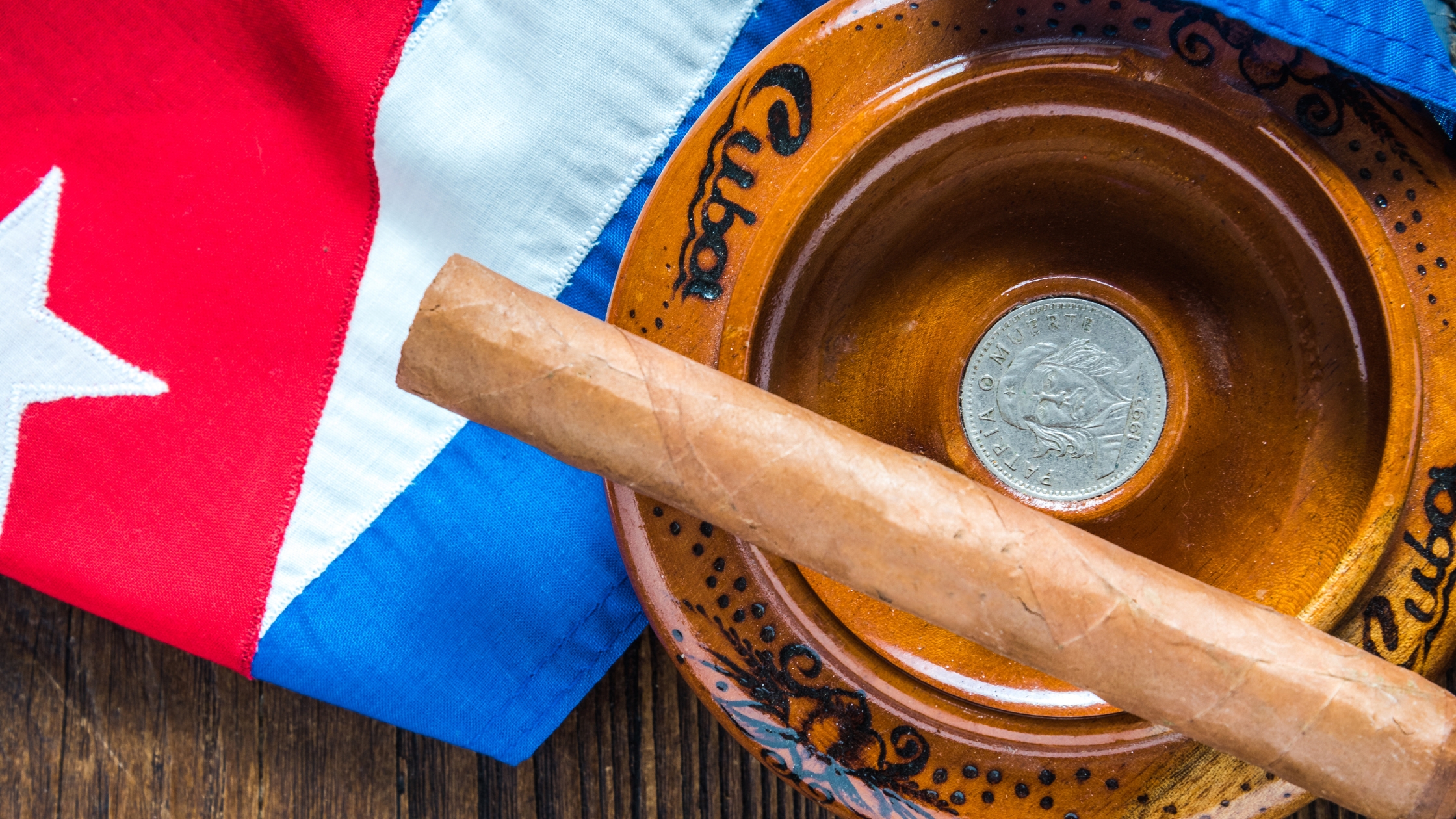

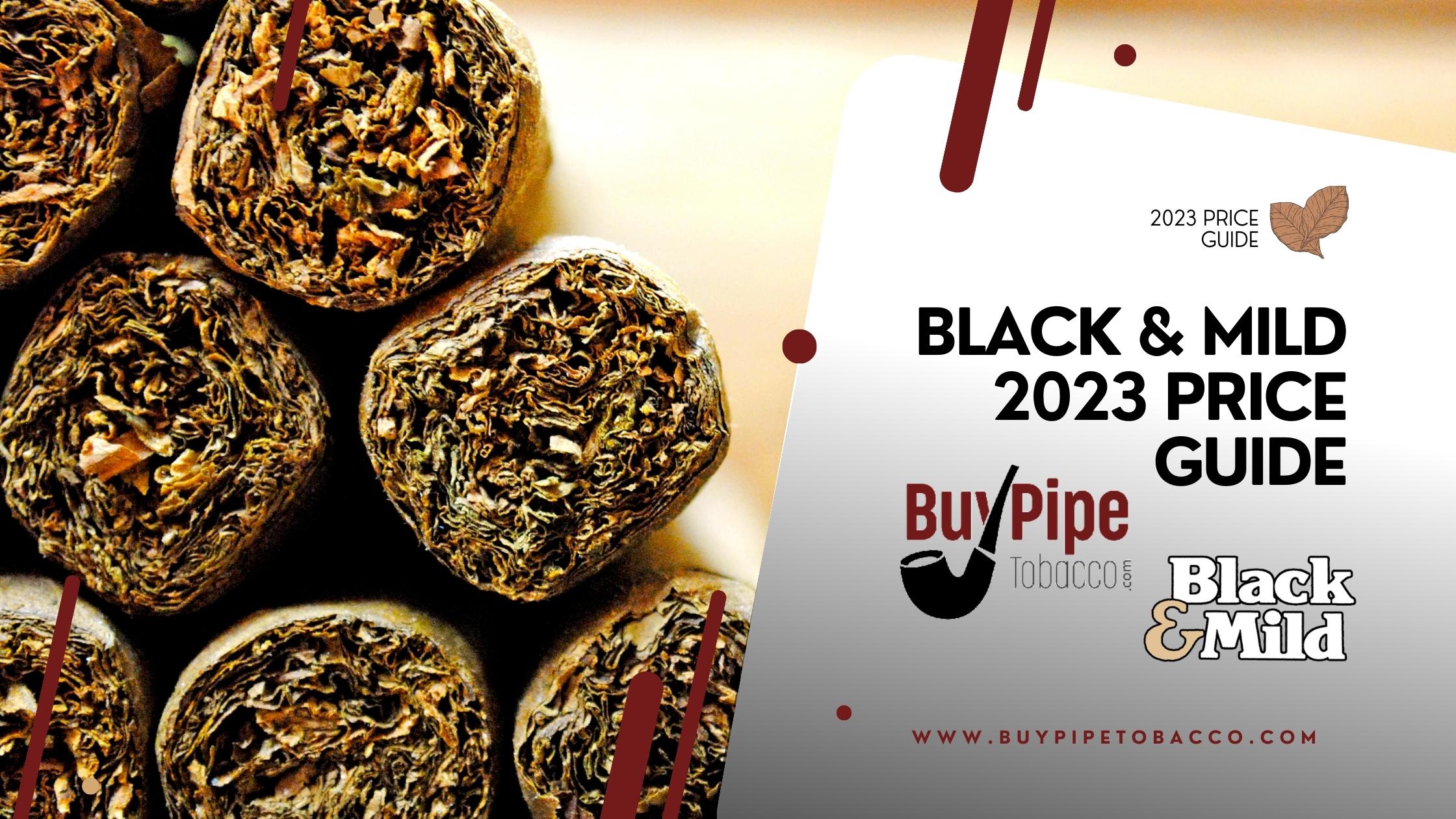
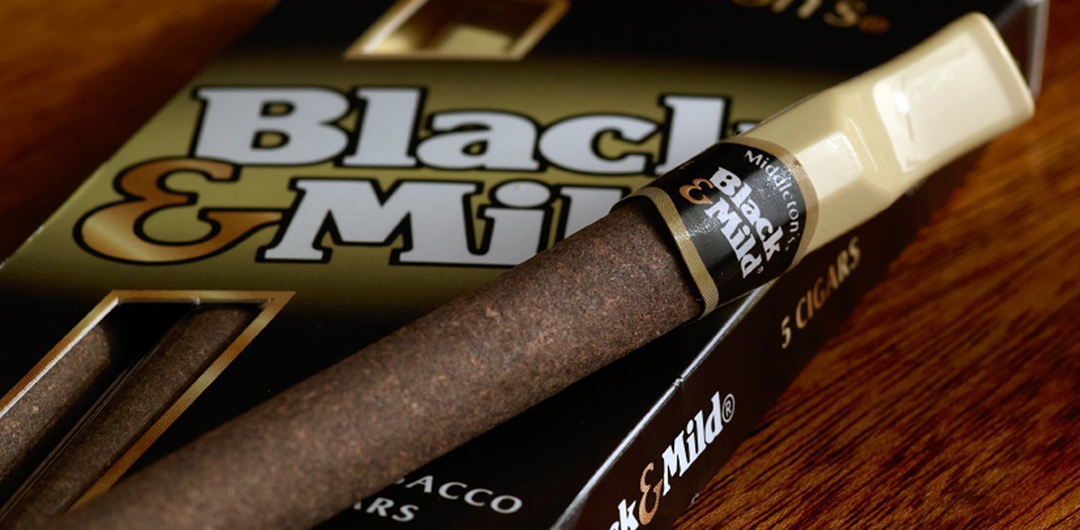

Recent Comments